Harnessing AI for Smarter Marketing Strategies
- Jul 29, 2025
- 4 min read
In today's fast-paced digital world, businesses are constantly seeking innovative ways to connect with their audience and optimize their marketing efforts. One of the most transformative advancements in recent years is the integration of artificial intelligence (AI) into marketing strategies. AI-powered tools are revolutionizing how companies analyze data, personalize content, and automate campaigns, leading to smarter, more effective marketing.
Exploring Artificial Intelligence Marketing Tools
Artificial intelligence marketing tools are software applications that use machine learning, natural language processing, and data analytics to enhance marketing activities. These tools help marketers understand customer behavior, predict trends, and deliver personalized experiences at scale.
Some popular categories of AI marketing tools include:
Customer segmentation and targeting: AI analyzes customer data to group audiences based on behavior, preferences, and demographics.
Content creation and curation: Tools generate or recommend content tailored to specific audience segments.
Chatbots and virtual assistants: These provide instant customer support and engagement on websites and social media.
Predictive analytics: AI forecasts customer actions, such as purchase likelihood or churn risk.
Ad optimization: AI adjusts ad bids and placements in real-time to maximize ROI.
For example, a retail brand can use AI-powered segmentation to identify high-value customers and deliver personalized email campaigns that increase conversion rates. Similarly, chatbots can handle common customer queries 24/7, freeing up human agents for complex issues.

How Artificial Intelligence Marketing Tools Transform Campaigns
The integration of AI marketing tools transforms campaigns by making them more data-driven, efficient, and customer-centric. Here are some key ways AI enhances marketing efforts:
Personalization at Scale: AI analyzes vast amounts of data to deliver personalized messages to millions of users simultaneously. This increases engagement and customer loyalty.
Real-Time Decision Making: AI algorithms optimize campaigns in real-time by adjusting bids, targeting, and creative elements based on performance data.
Improved Customer Insights: AI uncovers hidden patterns in customer behavior, enabling marketers to tailor strategies more effectively.
Automation of Repetitive Tasks: Tasks like email scheduling, social media posting, and reporting are automated, saving time and reducing errors.
Enhanced Content Strategy: AI tools suggest trending topics, optimal posting times, and content formats that resonate with the audience.
For instance, a travel company might use AI to analyze social media trends and automatically generate blog posts about popular destinations, boosting organic traffic and engagement.

What is the Best Example of AI in Marketing?
One of the best examples of AI in marketing is the use of recommendation engines by e-commerce giants like Amazon and Netflix. These engines analyze user behavior, purchase history, and preferences to suggest products or content that users are most likely to enjoy.
Recommendation engines work by:
Collecting data on user interactions.
Using machine learning algorithms to identify patterns.
Delivering personalized suggestions in real-time.
This approach significantly increases customer satisfaction and sales. For example, Amazon’s recommendation system reportedly drives 35% of its revenue by suggesting relevant products to shoppers.
Another compelling example is the use of AI-powered dynamic pricing. Airlines and ride-sharing companies adjust prices based on demand, competition, and customer profiles, maximizing revenue while maintaining customer satisfaction.

Practical Tips for Implementing AI Marketing Tools
To successfully harness AI for smarter marketing strategies, consider the following actionable recommendations:
Start with Clear Objectives: Define what you want to achieve with AI, such as improving lead generation, increasing customer retention, or optimizing ad spend.
Choose the Right Tools: Evaluate AI marketing tools based on your business needs, budget, and technical capabilities.
Integrate with Existing Systems: Ensure AI tools can seamlessly connect with your CRM, email marketing platform, and analytics software.
Focus on Data Quality: AI’s effectiveness depends on clean, accurate, and comprehensive data. Invest in data management and governance.
Train Your Team: Equip your marketing team with the skills to interpret AI insights and make informed decisions.
Test and Iterate: Use A/B testing and pilot programs to measure AI tool performance and refine strategies accordingly.
For example, a small business might begin by implementing an AI-powered email marketing platform that personalizes subject lines and send times, then gradually expand to include chatbots and predictive analytics.
Future Trends in AI Marketing
The future of AI in marketing promises even more exciting developments. Some trends to watch include:
Voice Search Optimization: As voice assistants become more popular, AI will help marketers optimize content for voice queries.
Hyper-Personalization: AI will enable even deeper personalization by combining real-time data with emotional and contextual insights.
Augmented Reality (AR) and AI Integration: AI will enhance AR experiences, allowing customers to visualize products in their environment before purchase.
Ethical AI and Privacy: Marketers will need to balance AI capabilities with ethical considerations and data privacy regulations.
AI-Driven Creativity: AI tools will assist in generating creative content, from copywriting to video production, speeding up the creative process.
By staying ahead of these trends, businesses can maintain a competitive edge and deliver exceptional customer experiences.
Harnessing the power of ai in marketing is no longer optional but essential for businesses aiming to thrive in the digital age. By leveraging artificial intelligence marketing tools, companies can create smarter, more efficient, and highly personalized marketing strategies that drive growth and customer satisfaction. Embracing AI today sets the foundation for success in tomorrow’s marketplace.




Comments